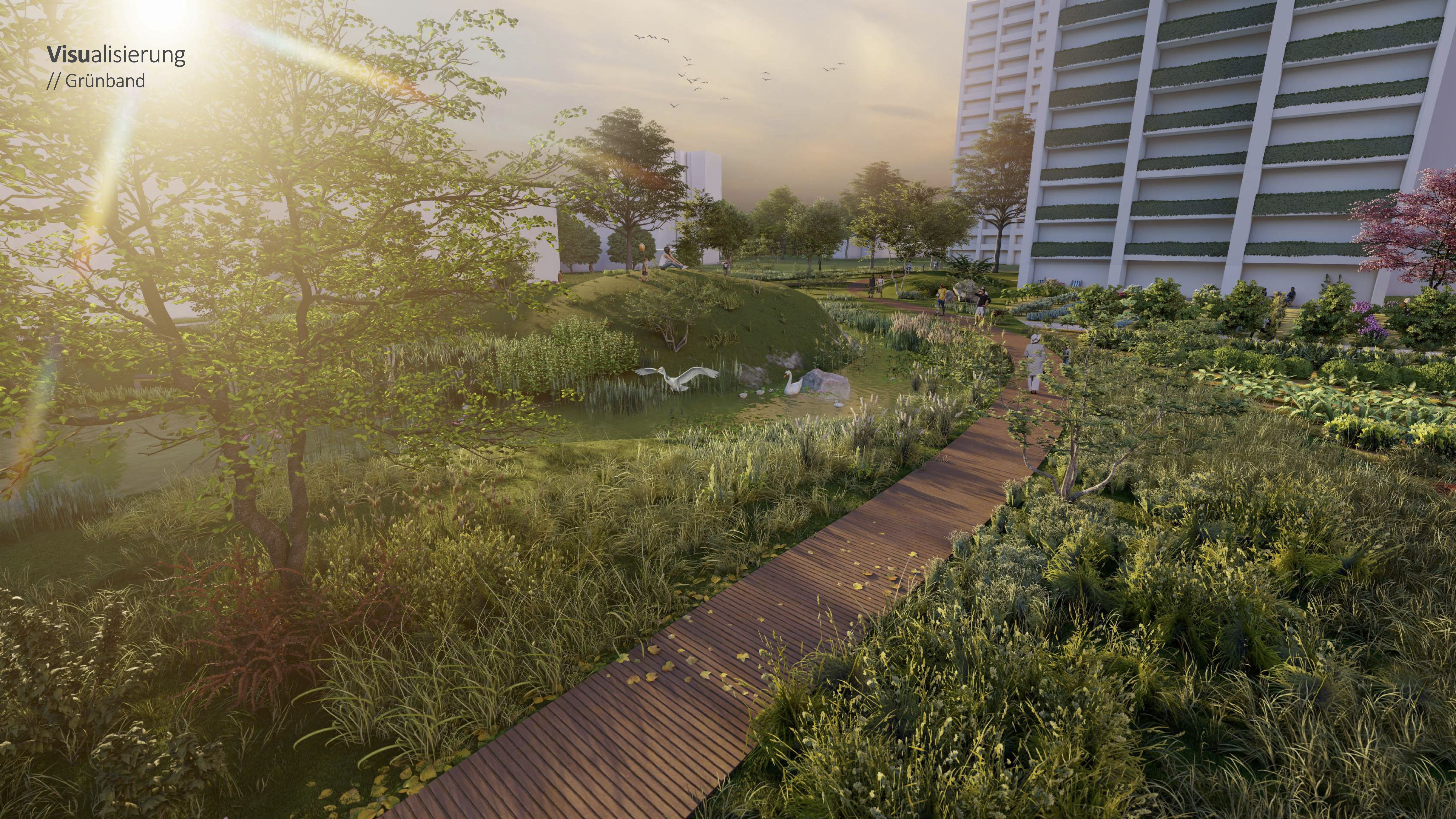
Transforming Landwasser: Plural Identities
Trough Dense and Green
KIT - Karlsruhe Institute of Technology
The challenges of the climate crisis, resource scarcity, and population growth require contemporary architecture to address ecological, economic, and sociocultural issues. To do this, multidisciplinary and radical planning approaches are necessary.
Landwasser, Freiburg's first large housing development area, emerged in the 1960s to address the housing shortage. It provides living space for approximately 7,000 inhabitants and covers roughly 110 hectares. There are expansive bungalow complexes with private gardens and several high-rise complexes known as social hotspots. However, the undeveloped areas consist mainly of monotonous green spaces and extensive land paved for oversized, car-oriented driveways. The objective of the Design is to integrate Landwasser as a dense, green, multicultural, and forward-thinking component of sustainable urban development in Freiburg's Green City. This entails increasing the height of existing buildings and densifying sporadically while employing consistent typologies. The proposed cultural and educational axis aims to connect existing cultural attractions with new facilities by establishing a network of pathways and squares. This approach will strengthen community cohesion and reduce social inequalities. It prioritizes car-free zones and communal spaces over individual ones for a more environmentally and climate-friendly infrastructure.The redesign also involves regenerating natural areas that promote biodiversity by removing excessive paving and redesigning open spaces.
